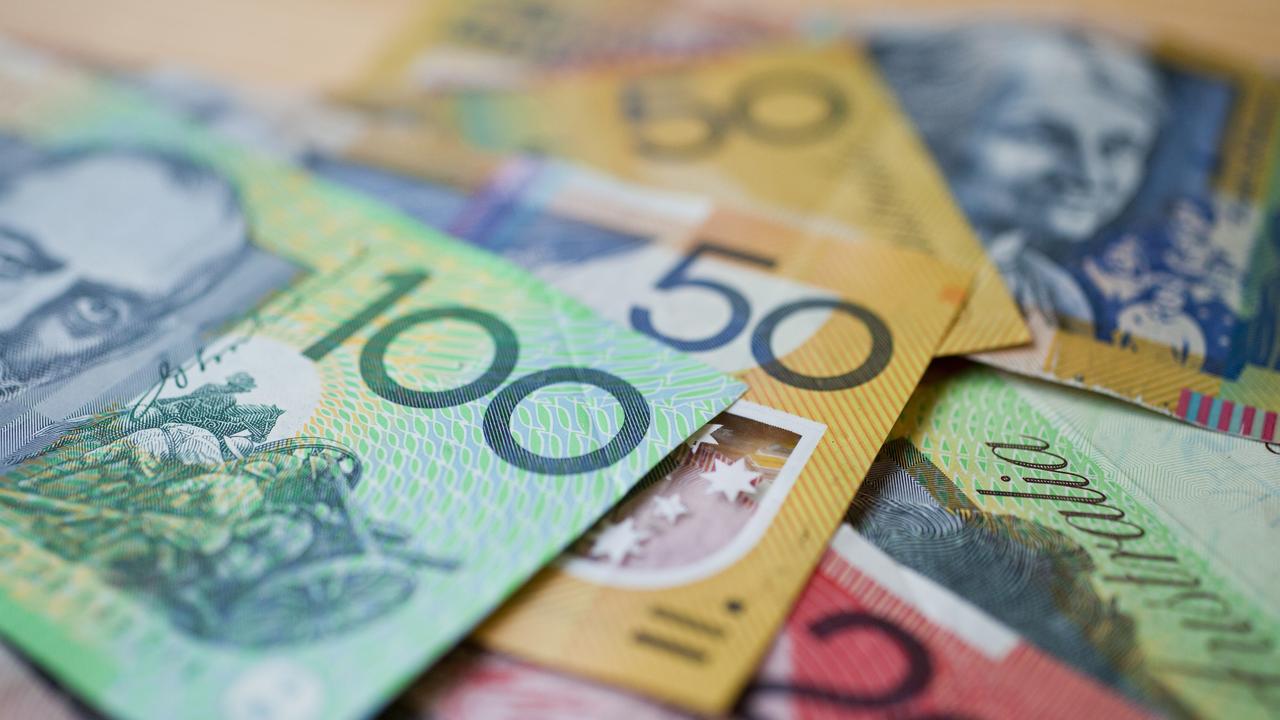Financial adviser’s seven simple steps to earn $1 million revealed
Earning $1 million is probably more within your reach than you realise – and it doesn’t involve gambling on the lottery.
Earning $1 million is probably more within your reach than you realise – and it doesn’t involve gambling on the lottery.
Our wealth is far more complex than just our bank balance, meaning we often underestimate our worth. Many households are millionaires already – McCrindle estimates average net household wealth in Australia is now $1.042 million.
If you’re younger or have less to your name, getting that first $1 million is a great goal to have.
Here are some tips to help you do it.
1. Start now
The earlier in life you start investing, the more you will have (barring any major catastrophes).
Say you invest $10 weekly from age 20, earning on average 7 per cent annually. By age 60, you will have $103,810.26. Wait until age 30 to start investing, you would have less than half that ($49,119.61). Start at age 40, and you would only have $21,317.66 at 60.
As you get older, your income grows so you can invest larger sums. But as shown here, the longer you wait, the more catching up you need to do.
2. Monitor spending
I previously outlined ways to slash monthly spending by $700 – an extra $8400 per year. Invest those savings at 7 per cent annually, that’s an extra $116,058.16 after a decade.
Pay particular attention to spending that doesn’t give you any real value – unused subscriptions, “loyalty taxes”, late payment charges etc.
3. Reduce debts
Paying off debts saves heaps over time and frees up more cash for savings and investments.
For example, ASIC estimates Australians have $19 billion in credit card debt accruing interest each month – $703.70 each. Given many credit cards have interest rates over 20 per cent, that is at least $140.74 in annual interest, or $1407.40 over a decade – money better used elsewhere.

4. Boost income
When was the last time you:
• Asked for a payrise at work?
• Gained an extra qualification or certification to command a higher salary?
• Chased money that is owed to you?
• Sold unused items around your home?
• Turned your hobby into a side hustle?
There are various ways to boost our income, but if you don’t ask or action any of them, you won’t get. Even $200 extra each month is $2400 annually, or $24,000 over 10 years – excluding super on any paid employment.
5. Love thy super
Numerous factors determine how much superannuation we have at retirement, including:
• Which fund you choose – each with its own costs, returns, risks and investment options. For example, annual fees on retail funds vary between $260 and $693 – or $13,000 to $34,650 over 50 years (although they will increase over time).
• Periods where there are no contributions – time out of the workforce, working overseas.
• How actively you manage your investments and risks.
• Using contributions rules to grow your balance faster and cut income tax.
• Consolidating multiple funds wisely (or unwisely).
• Potential discounts and cash flow benefits of having insurances in super vs direct.
While everyone’s situation is different, these factors combined could boost (or drain) your super by hundreds of thousands of dollars over your working life.

6. Avoid overpaying tax
H & R Block research suggests Australians overlook $237.44 in tax refunds each year. Do that every year over your 50-year working life, and you’re down by $11,872.
If that money had been invested at 7 per cent per annum, you’d have had an extra $96,526.23.
Claim deductions in full and keep good records to avoid missing anything.
7. Get on the property ladder
Residential property accounts for 67.9 per cent of Australians’ net household wealth. Using McCrindle’s estimate of $1.042 million, that means every household has accumulated $707,518 from property.
Building wealth from property is twofold – the capital growth (your profit when you eventually sell it) and leveraging your equity in the meantime for additional investments.
There are many other ways to get into property, including buying cheaper investments in cheaper markets, co-purchasing with friends or relatives, or investing in real estate investment trusts (REITs) and property shares.
Be diligent
As the numbers above show, being logical and structured with money could see you more than $1 million richer by retirement – or sooner if you make more, save more and manage what you have better.
Make a plan, revise it as your circumstances change, implement contingencies in case things go wrong and get good professional advice on financial, tax and legal matters.
Because preparation and reputable guidance are the best investments you can make.
Helen Baker is a licensed Australian financial adviser and author of On Your Own Two Feet: The Essential Guide to Financial Independence for all Women. Helen is among the 1 per cent of financial planners who hold a master’s degree in the field. Proceeds from book sales are donated to charities supporting disadvantaged women and children. Find out more
at www.onyourowntwofeet.com.au
Disclaimer: The information in this article is of a general nature only and does not constitute personal financial or product advice. Any opinions or views expressed are those of the authors and do not represent those of people, institutions or organisations the owner may be associated with in a professional or personal capacity unless explicitly stated.





